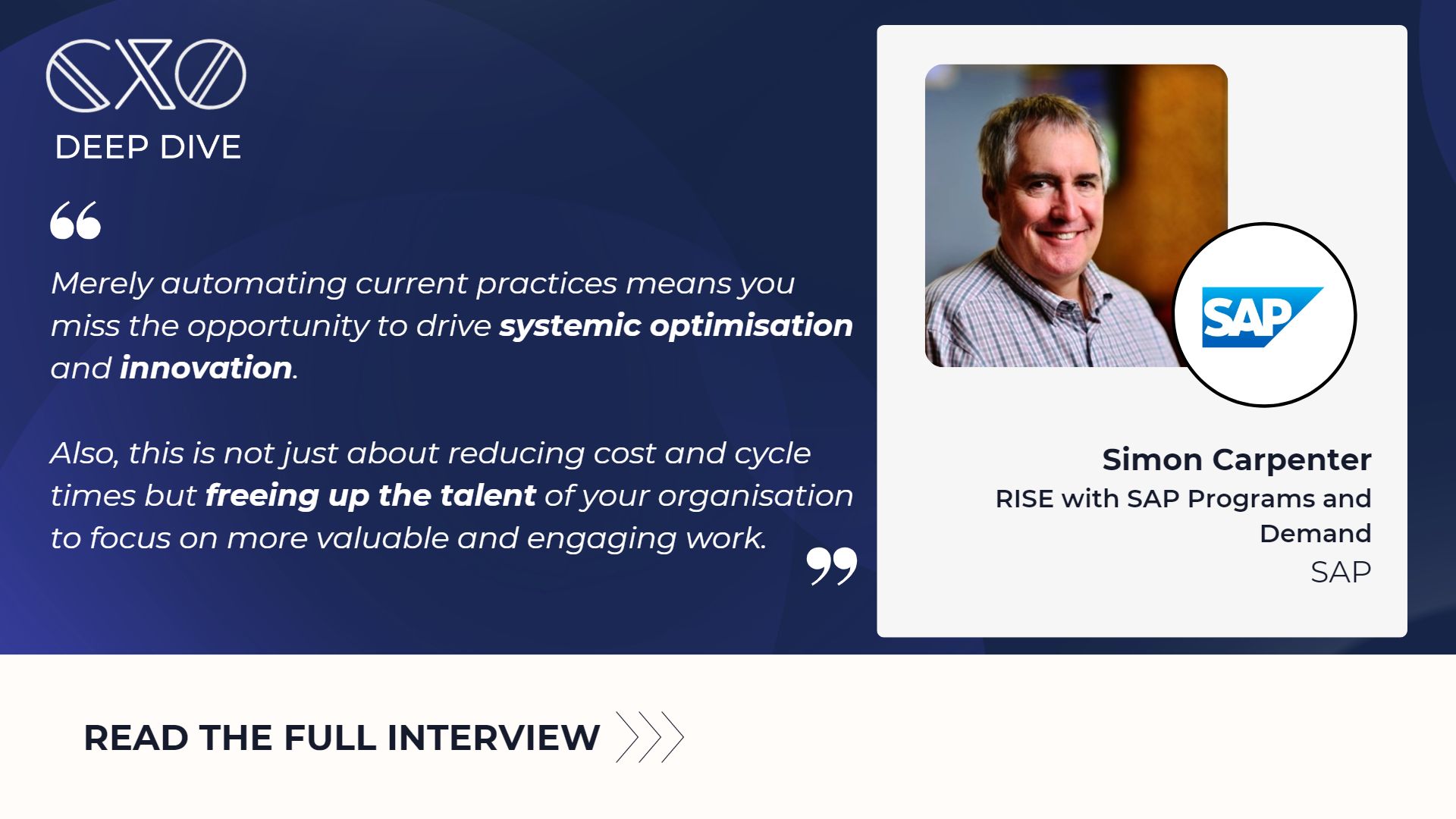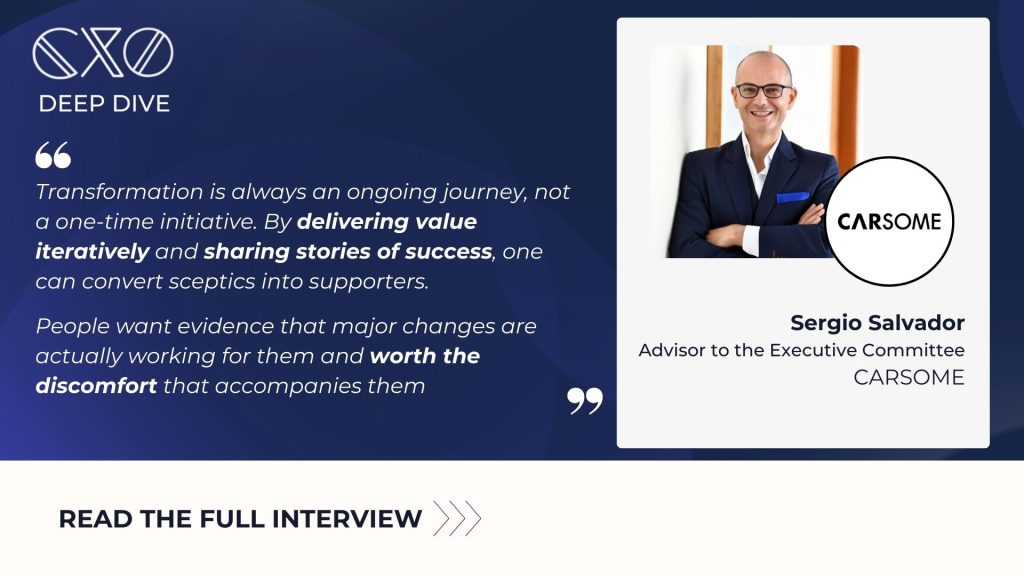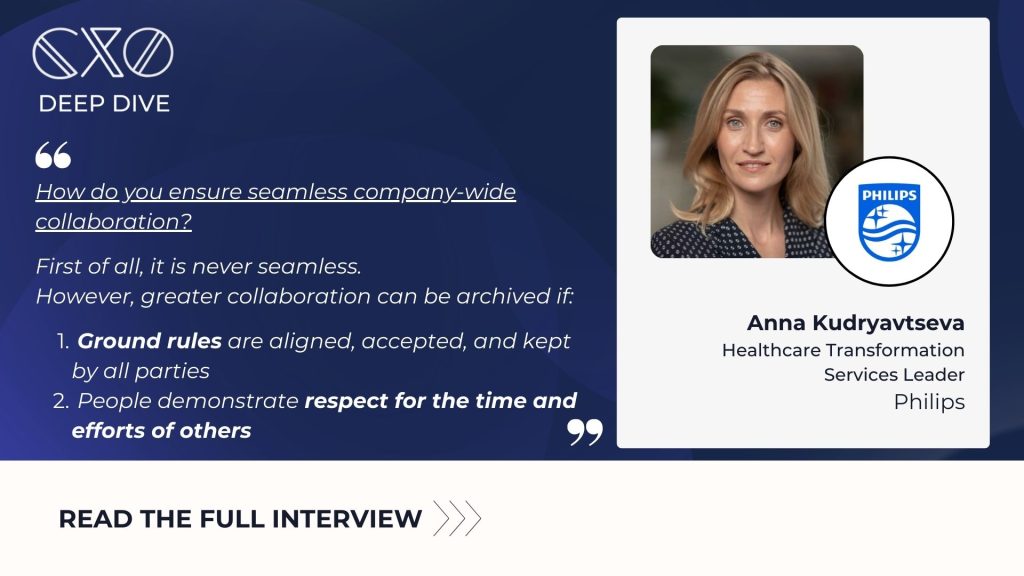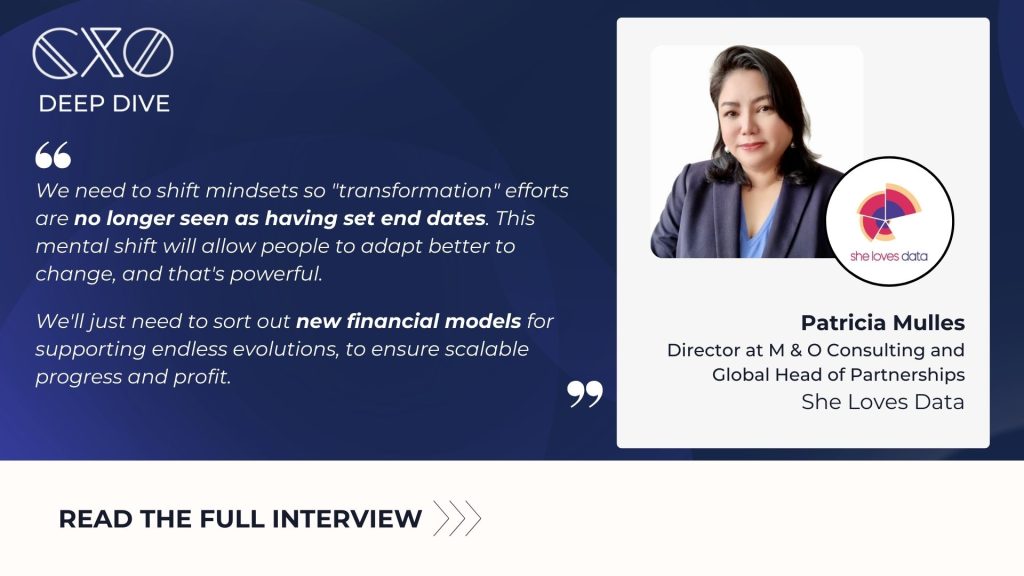Simon Carpenter, RISE with SAP Programs and Demand, SAP recently spoke at the Chief Transformation Officer Summit London on 6 June 2023. At the summit, he shared his experience and insights on Digital Transformation & Organisational Alignment with an esteemed panel of Chief Officers representing diverse industries.
In this CXO Deep Dive, he answers the top-voted questions from the prestigious attendees of the summit, exploring the different aspects of Digital Transformation.
“There is no Digital Transformation…just Transformation. Agree or disagree?“
I think this is a matter of perspective. You can, of course, deliver business transformation without leveraging digital technologies (although that would be rare today). On the other hand, you may want to drive a transformation where digital technologies are the sole reason for the change. However, focusing only on digital (technology) doesn’t necessarily lead to better business outcomes even though IT may wind up with some shiny new toys and perhaps a few IT cost reductions over time.
A more useful way to frame the conversation is to ask, “how do I need to transform my business to be successful in the digital age?” In this way, you will take a broader view of the impact a swathe of digital technologies are having on your value network. It could be the blockchain will change the way you share information with your ecosystem, or that omni-channel capabilities expand your reach into new markets, or that a combination of IoT and AI enable you to change your entire business model. Asking the question this way also prompts you to start thinking about the impact on skills, culture, organisational design, and the many other facets of a successful business transformation. It’s also worth thinking about transformation as a continuum ranging from improving or optimising what you are already doing (i.e. efficiencies and cost reductions) to extending into new areas (e.g. adding an omni-channel capability to a traditional bricks-and-mortar model) to shaking up an entire industry with a business model change.
“Do you see automation as a path to drive operational efficiencies and ultimately save costs?“
Yes. But only if you take the time to really understand your current business processes and whether they represent the best and standard practice in the domain. Merely automating current practices means you miss the opportunity to drive systemic optimisation and innovation. Also, this is not just about reducing cost and cycle times but freeing up the talent of your organisation to focus on more valuable and engaging work.
“Can Digital Transformation facilitate better inter-company partnerships & collaboration to deliver higher quality, sustainable profitable products & services?“
Absolutely. You only have to look at the success of today’s digital giants like Amazon, Uber, AirBnB, ARIBA and Concur to understand that the platform economy (which is contingent on digital technologies and ecosystem partnerships) is key to creating value.
The example of Catena-X is instructive in this regard. As the automotive industry is disrupted by the shift to electric vehicles, changing consumer behaviours and geo-political impacts on supply chains it is responding by enhancing its ability to be more efficient and collaborative through the use of digital platforms
“Digital Transformation is never just Digital Transformation. Or you’re doing it wrong…“
Not necessarily doing it wrong (e.g. there may be valid reasons in the short term why a CIO might want to shift workloads to the cloud) but almost certainly missing the opportunity to create meaningful and enduring value. And, more importantly, looking at transformation as a technology initiative only is a surefire way to increase the risk of failure. In my many years of working in the IT industry I can state categorically that in most cases where IT / digital projects have failed it’s been because of human / organisational factors not being addressed rather than deficiencies in the technology itself.
Some of the factors that spring to mind:
- Lack of Executive Sponsorship and organisational buy-in to the proposed change
- Lack of clear, measurable objectives and outcomes and/or a failure to track progress towards these
- Poor change management and communications
- Ineffective re-skilling of staff
- Poor program and project management and ineffective change controls
- Under-resourcing and/or not assigning the best people to the program.
- Failing to understand and address the data that underpins digitally-enabled transformations and the shift towards fact-based decision-making.
“Do you see Transformation as a distinct skillset, best delivered by “Transformation experts”, or is it better to be led by the core business?“
If you want to “land” a major transformation successfully then the core business must be committed to the initiative from start to ongoing improvements. This doesn’t happen without a catalyst, educator and guide and therein lies the value of transformation experts who can take a broad view of the business and bring together the people, processes and technologies required to deliver successful transformation.
“Is removing single human points of failure an achievable goal of Digital Transformation?“
This depends on how you view the role of humans in your business processes. Digital technologies can certainly help to remove humans from the mundane, repetitive, and high-volume tasks where errors are likely to occur due to inattention, boredom, or tiredness. These technologies can also shift the organisation towards fact-based decision-making rather than human intuition.
So, while we may not remove all human points of failure, what we can do is shift towards a model where we are less reliant on humans for routine work and people are freed up to focus on strategic, creative, and relational tasks.
“What do you ultimately do with people that do not want to change?“
In some cases you will simply have to let them go or retire them but this should be a last resort given the pervasive skills shortage in Western economies. Better by far to ensure that talent and skills are subject to an ongoing conversation in the business (facilitated by the above-mentioned transformation experts) and that people clearly understand the “whys and hows” of impending change and are offered the opportunity to upskill and reskill (which itself can be facilitated by A.I.-powered learning platforms).
A big thank you to Simon for the insightful answers to the audience’s questions! And also thanks to the ones who shared their thoughts and uncertainties through these questions. We were thrilled to be able to gather the room full of transformational leaders, to exchange their thoughts and ideas!
Find out more about what we discussed on the summit day in the Post-Summit Report of the Chief Transformation Officer Summit London 6 June 2023: https://cxoinnovation.com/post/post-summit-report-chief-transformation-officer-summit-june-2023
Visit our content library for more insights from the CXOs: https://cxoinnovation.com/content-library/
Join our LinkedIn CXO Community.





